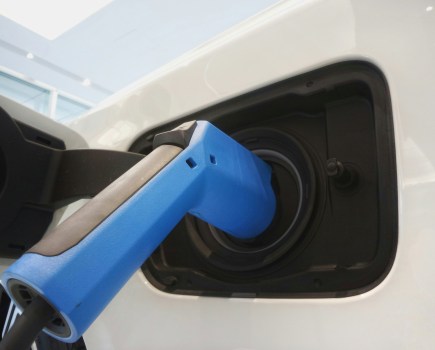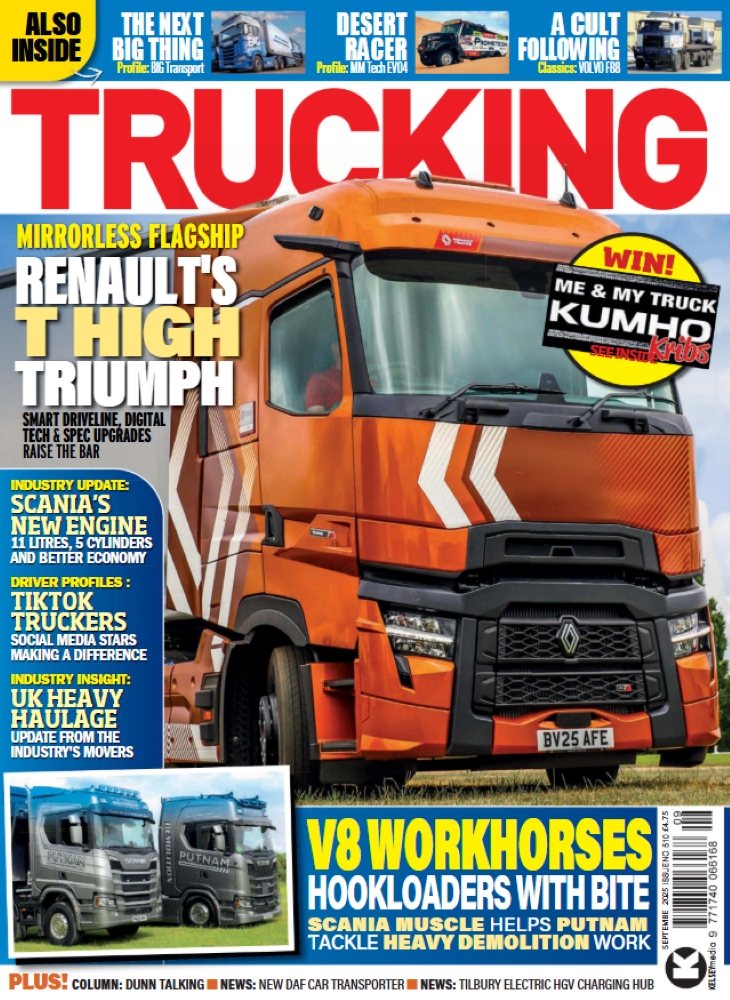As global efforts to combat climate change intensify, the decarbonisation of fleet operations has become a strategic imperative for UK businesses. A release published last year by the Department of Transport revealed that Heavy Goods Vehicles (HGVs) and light vans contributed to just under 10% of the UK’s total domestic emissions. These statistics highlight the importance of fleet decarbonisation for a sustainable future from a commercial perspective.
However, whilst restrictions to combat climate change tighten, there is hope for businesses looking to take advantage of decarbonisation. For companies that have already started focusing on decarbonising their operations, they aren’t just reducing emissions. They are positioning themselves as market leaders. By embracing sustainable practices, these businesses have enhanced their brand reputation, attracted eco-conscious customers, and likely unlocked new commercial opportunities.
With this in mind, Andrew Tavener, Head of Fleet Marketing EMEA at Descartes, explores the key strategies and practical solutions that can help organisations achieve their decarbonisation goals in fleet operations.
Key Strategies for Decarbonising Fleet Operations
Fleet decarbonisation isn’t just a goal; it’s a business advantage today. With rising fuel costs, stricter regulations and an ever-increasing demand for sustainable supply chains and deliveries, now is the time for businesses to take action. Here are a few key considerations and strategies that companies can employ to stay ahead of the curve and meet the demands on their operations.
Electrification
With the rise of Ultra Low Emission Zones (ULEZs) in towns and cities across the UK, electrification has become a reliable way for businesses to avoid unexpected fines. Additionally, transitioning to electric vehicles (EVs) offers a significant reduction in biofuels, along with lower maintenance costs, ultimately saving businesses money in the long run. There are also several government incentives available to companies that decide to onboard EVs.
Electrification also offers the potential for an improved brand image. However, whilst businesses will undoubtedly save money in the long run, initially going electric may come at a hefty price. With these high upfront costs partnered with limited infrastructure, making the transition to EVs can be less appealing to some smaller logistics teams and one-man operators.
Alternative fuels
The transition to alternative fuels is reshaping logistics. Biofuel technologies, such as biodiesel, biogas, and bio-methanol, as well as e-fuels like methanol and ammonia, offer sustainable solutions towards decarbonization. Of course, the type of fuel used in logistics operations often depends on the type of operation, whether it’s air, land or sea. However, exploring options such as biofuels, hydrogen fuel cells, and renewable natural gas is an excellent way for fleet operators to reduce carbon emissions, improve fuel security, and ultimately save a significant amount of money in the long term.
Like electrification and EVs, alternative fuels do have limited infrastructure and higher initial costs, which means businesses run the risk of supply chain disruptions if fuels are unavailable. However, with continued research and development, coupled with government incentives, it is likely that the adoption of these alternative fuels could help many fleets decarbonise their operations in the future.
Route optimisation
Implementing advanced delivery scheduling and route optimisation software is crucial for fleet operations in the quest to decarbonise. Progressive route optimisation tools help businesses immediately reduce mileage and fuel consumption, while increasing delivery capacity and improving driver productivity. For example, after Topps Tiles, a leading U.K. tile retailer, incorporated route optimisation technology into its business, it decreased the miles per delivery route by two per cent. While the benefits are clear, integrating route optimisation tools with existing systems can pose challenges. Ensuring data accuracy, managing software compatibility, and maintaining the system over time require ongoing attention and maintenance. However, as a proven technology vendor, artificial intelligence (AI) and machine learning are making strides every day, route optimisation tools are essential in maintaining sustainable and cost-effective fleet operations.
Take advantage of government regulations and incentives
To accelerate decarbonisation across fleet operations, the UK government has introduced incentives. For example, starting in 2030, only zero-emission cars will be sold, pending the outcome of current consultations and their subsequent implementation as law. Vans and HGVs are expected to follow, with a phase-out date set for 2035.
The financial incentives in place also include subsidies and tax breaks for purchasing electric and alternative fuel vehicles. The UK Government’s Plug-in Van Grant offers savings of £2,500 to £5,000, depending on van size, with up to £16,000 available for heavier models. The Local Electric Vehicle Infrastructure (LEVI) fund helps local authorities in England collaborate with the charge point industry, while separate grants support companies installing EV charge points for staff and fleets.
Additional incentives include the First Year Allowance, which allows businesses to deduct the full cost of purchasing an electric vehicle from their taxable profits in the year of purchase. The EV Infrastructure Grant helps small to medium-sized companies support their infrastructure and install EV charge points for staff and fleet vehicles.
To conclude…
In light of the various government regulations and the need to reduce costs, implementing an array of these solutions today is a strategic imperative for fleet operators to consider. What is more, according to the 2025 Home Delivery Consumer Sentiment Study, 40% of consumers aged under 35 years old indicated interest in receiving an environmentally-friendly delivery option, with a further 23% of people over 65 years old also considering this. Therefore, also highlights the importance of environmentally conscious business practices to consumers. With the use of route optimisation technology, businesses can ensure they remain efficient and competitive by reducing miles across their fleet of vehicles, saving on fuel and enhancing brand recognition.
Of course, the rest of the solutions mentioned will work and be effective as part of a broader strategy to replace vehicles in the future. But organisations need to reduce costs and decarbonise now, which is something that more effective route planning can immediately provide, ahead of the longer-term investments, and the benefits that will be derived from using other methods of transport across fleets.
For more like this visit the Trucking Magazine website (https://truckingmag.co.uk), or subscribe to Trucking Magazine here (https://shop.kelsey.co.uk/trucking-magazine).






